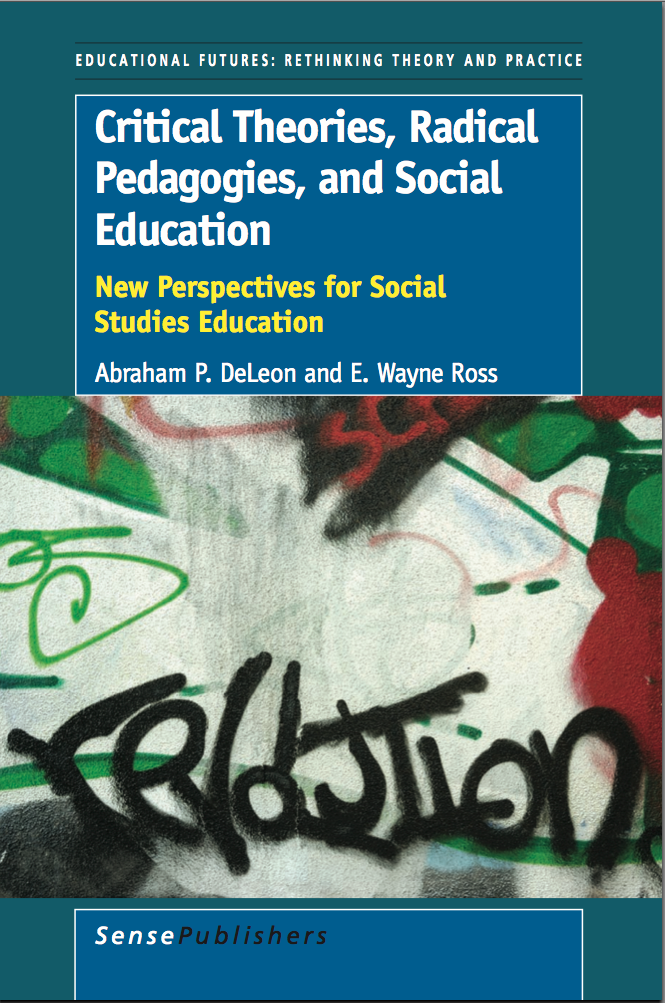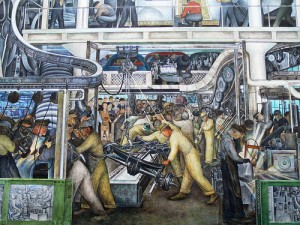Edited by:
Abraham P. DeLeon
University of Texas, San Antonio, USA
and
E. Wayne Ross
University of British Columbia, Canada
Critical Theories, Radical Pedagogies, and Social Education: New Perspectives for Social Studies Education begins with the assertion that there are emergent and provocative theories and practices that should be part of the discourse on social studies education in the 21st century. Anarchist, eco-activist, anti-capitalist, and other radical perspectives, such as disability studies and critical race theory, are explored as viable alternatives in responding to current neo-conservative and neo-liberal educational policies shaping social studies curriculum and teaching.
Despite the interdisciplinary nature the field and a historical commitment to investigating fundamental social issues such as democracy, human rights, and social justice, social studies theory and practice tends to be steeped in a reproductive framework, celebrating and sustaining the status quo, encouraging passive acceptance of current social realities and historical constructions, rather than a critical examination of alternatives. These tendencies have been reinforced by education policies such as No Child Left Behind, which have narrowly defined ways of knowing as rooted in empirical science and apolitical forms of comprehension.
This book comes at a pivotal moment for radical teaching and for critical pedagogy, bringing the radical debate occurring in social sciences and in activist circles—where global protests have demonstrated the success that radical actions can have in resisting rigid state hierarchies and oppressive regimes worldwide—to social studies education.
TABLE OF CONTENTS
Acknowledgement: Through Collaboration, All Things are Possible
Introduction: On the Edge of History: Towards a New Vision of Social Studies Education
Abraham P. DeLeon and E. Wayne Ross
1. Anarchism, Sabotage, and the Spirit of Revolt: Injecting the Social Studies with Anarchist Potentialities
Abraham P. DeLeon
2. Embattled Pedagogies: Deconstructing Terror from a Transnational Feminist Disability Studies Perspective
Nirmala Erevelles
3. Ecojustice, Community-based Learning, and Social Studies Education
Rebecca A. Martusewicz and Gary R. Schnakenberg
4. Why have School?: An Inquiry through Dialectical Materialism
Rich Gibson
5. Gumbo and Menudo and the Scraps of Citizenship: Interest Convergence and Citizen-making for African Americans and Mexican Americans in U.S. Education
Anthony Brown and Luis Urrieta, Jr.
6. “The Concrete Inversion of Life”: Guy Debord, the Spectacle, and Critical Social Studies Education
Kevin D. Vinson, E. Wayne Ross and Melissa B. Wilson
7. Critically Examining the Past and the “Society of the Spectacle”: Social Studies Education as a Site of Critique, Resistance, and Transformation
Brad J. Porfilio and Michael Watz
8. The Long Emergency: Educating for Democracy and Sustainability during Our Global Crisis
David Hursh
9. Building Democracy through Education: Human Rights and Civic Engagement
William T. Armaline
10. Critical Reflection in the Classroom: Consciousness, Praxis, and Relative Autonomy in Social Studies Education
Wayne Au
11. The Radical and Theoretical in Social Studies
Stephen C. Fleury
Download PDF of book Introduction, Chapters 1 & 2 here.

 Follow
Follow

